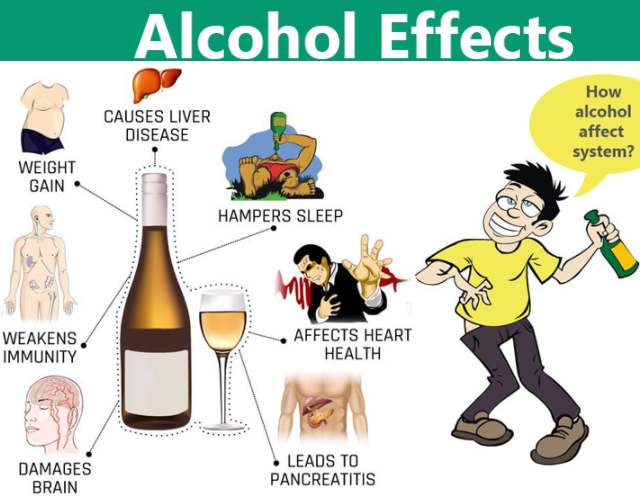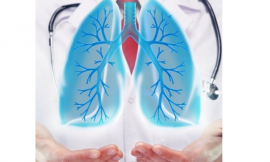The main psychoactive ingredient in alcoholic beverages is ethanol, this makes you drunk. Alcohol is one of the most popular psychoactive substances in the world. It can have powerful effects on your mood and mental state.
Alcohol help to reduce Alcohol is one of the most popular psychoactive substances in the world. It can have powerful effects on your mood and mental state.
Alcohol reduce self-consciousness and may encourage people to act without inhibition. If we talk our how it affect our body, the truth is that the health effects of alcohol vary between individuals and depend on the amount and type of alcohol consumed.
Impact on Liver
Your liver is a remarkable organ with hundreds of essential functions. One of its main roles is to neutralize various toxic substances you consume. For this reason, your liver is particularly vulnerable to damage by alcohol intake. Liver diseases caused by alcohol consumption are collectively known as alcoholic liver diseases.
The first of these to appear is fatty liver, characterized by increased fat inside liver cells. Fatty liver gradually develops in 90% of those who drink more than a 1/2 ounce (15 ml) of alcohol per day and is usually symptom less and fully reversible. In heavy drinkers, binge drinking may cause your liver to become inflamed. In worst-case scenarios, liver cells die and get replaced with scar tissue, leading to a serious condition called cirrhosis. Cirrhosis is irreversible and associated with many serious health problems. In advanced cirrhosis, a liver transplant may be the only option.
Impact on Brain
Excessive alcohol consumption can have numerous adverse effects on your brain. Ethanol reduces communication between brain cells a short-term effect responsible for many of the symptoms of being drunk.
Binge drinking may even lead to a blackout, a phenomenon characterized by memory loss, or amnesia, during a heavy drinking episode. These effects are only temporary, but chronic alcohol abuse may cause permanent changes in your brain, often leading to impaired brain function. Because your brain is very sensitive to damage, chronic alcohol abuse may increase your risk of dementia and cause brain shrinkage in middle-aged and older adults.
Conversely, drinking moderately has been linked to a reduced risk of dementia especially in older adults.
Impact on Heart
Heart disease is the leading cause of death in modern society. It is a broad category of diseases, the most common of which are heart attacks and strokes. The relationship between alcohol and heart disease is complex and depends on several factors.
Light to moderate drinking is linked to a reduced risk of heart disease, while heavy drinking appears to increase the risk. There are several possible reasons for the beneficial effects of drinking moderately.
Moderate alcohol consumption may:
- Raise good HDL cholesterol in your bloodstream
- Decrease blood pressure, a major risk factor for heart disease
- Lower your blood concentration of fibrinogen, a substance that contributes to blood clots
- Cut the risk of diabetes, another major risk factor for heart disease
- Reduce stress and anxiety temporarily
Impact on body weight

Obesity is a serious health concern. Alcohol is the second most calorie-rich nutrient after fat packing about 7 calories per gram. Beer has a similar number of calories as sugary soft drinks, ounce for ounce, whereas red wine has twice as much.
It seems that drinking habits and preferences may play a role. For example, moderate drinking is linked to reduced weight gain, whereas heavy drinking is linked to increased weight gain. In fact while drinking beer regularly may cause weight gain wine consumption may cause weight loss.
Impact on Digestive system
The connection between alcohol consumption and your digestive system might not seem immediately clear. The side effects often only appear after there has been damage. And the more you drink, the greater the damage will become.
Drinking can damage the tissues in your digestive tract and prevent your intestines from digesting food and absorbing nutrients and vitamins. As a result, malnutrition may occur.
Heavy drinking can also lead to:
- gassiness
- bloating
- a feeling of fullness in your abdomen
- diarrhea or painful stools
For people who drink heavily, ulcers or hemorrhoids (due to dehydration and constipation) aren’t uncommon. And they may cause dangerous internal bleeding. Ulcers can be fatal if not diagnosed and treated early.
Depression
Alcohol intake and depression are closely but complexly associated. While alcohol intake and depression seem to increase the risk of one another simultaneously, alcohol abuse may be the stronger causal factor. Many people facing anxiety and depression drink intentionally to reduce stress and improve mood. While drinking may provide a few hours of relief, it will worsen your overall mental health and spark a vicious cycle. In fact, because heavy drinking is a major cause of depression in some individuals, treating the underlying alcohol abuse leads to big improvements.
Impact on Circulatory system
Alcohol can affect your heart and lungs. People who are chronic drinkers of alcohol have a higher risk of heart-related issues than people who do not drink. Women who drink are more likely to develop heart disease than men who drink.
Circulatory system complications include:
- high blood pressure
- irregular heartbeat
- difficulty pumping blood through the body
- stroke
- heart attack
- heart disease
- heart failure
Sexual and reproductive health
Alcohol may badly affect your reproductive health. en who drink too much are more likely to experience erectile dysfunction. Heavy drinking can also prevent sex hormone production and lower your libido.
In women drinking may stop menstruating, that leads to infertility. Women who drink heavily during pregnancy have a higher risk of premature delivery, miscarriage, or stillbirth.
Impact on Immune system
Drinking heavily reduces your body’s natural immune system. This makes it more difficult for your body to fight off invading germs and viruses.
People who drink heavily over a long period of time are also more likely to develop pneumonia or tuberculosis than the general population. About 10 percent Trusted Source of all tuberculosis cases worldwide can be tied to alcohol consumption. Drinking alcohol also increases your risk for several types of cancer, including mouth, breast, and colon. Click here to learn the basics of alcoholism. You can also read about the stages of alcoholism and recognizing an addiction.
These are the main effects of our whole body, alcohol have good and bad effects but both are completely depends on the quantity of alcohol. So your health is in your hand do care of it and be healthy.





